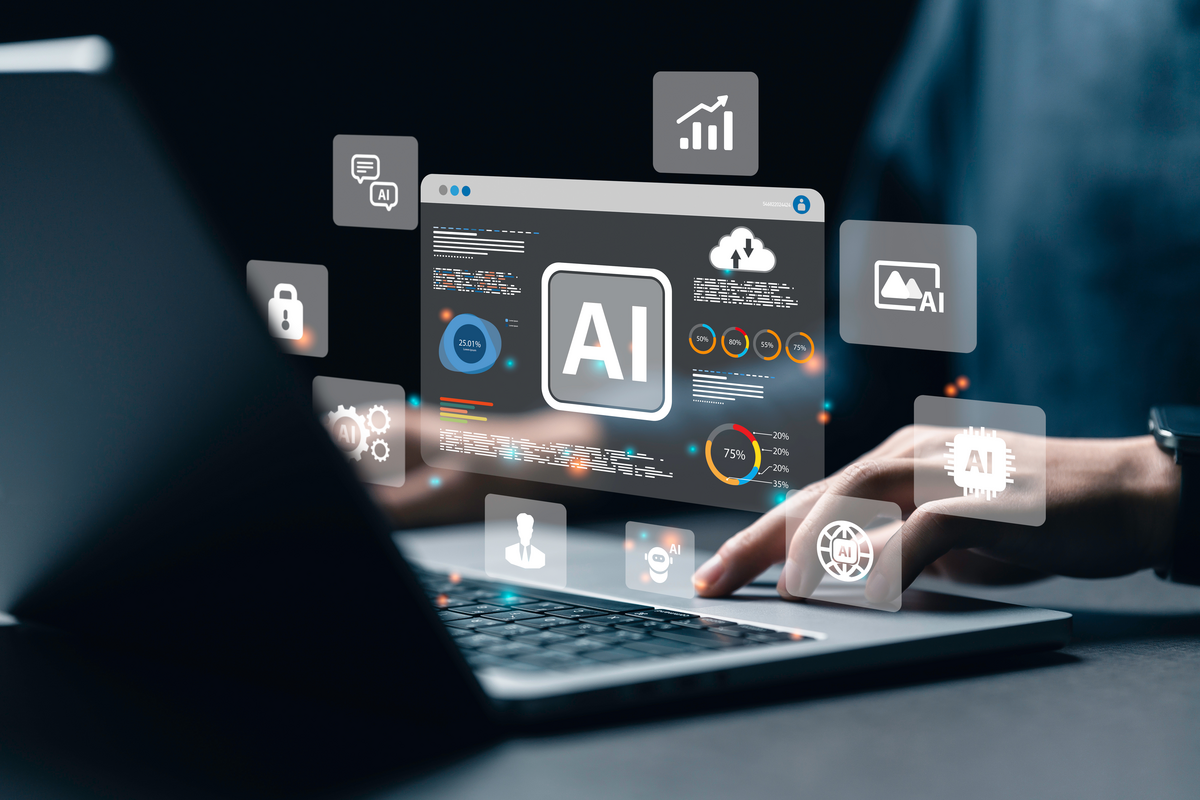The market hasn't been thrilled with Apple (AAPL +1.08%) this year. Its stock tanked after Trump's "Liberation Day" announcements, since its iPhones are predominantly made overseas, and its artificial intelligence (AI) upgrades have underwhelmed. Apple stock is trailing the market, down 21% year to date, even as the S&P 500 is starting to climb again.
Is it as bad as the market thinks? Here's one metric you should see before you decide.

Image source: Getty Images.
Apple and the ecosystem
Apple has a wide ecosystem of products and services that generates long-term loyalty and engagement. The company has always been focused on the user experience, with well-designed products that work. The iPhone is its premier product, with more than 2.3 million in circulation, and fans tend to upgrade at high rates.
There's been some lumpiness with iPhone sales over the past few years, since customers bought more phones when the pandemic started, and growth has tapered off. In the fiscal 2025 second quarter (ended March 29), iPhone sales inched up only 2% over last year. However, these users will be due for new phones over the next few years, steering the growth cycle back to historical norms.
Apple has been able to monetize its users with higher-margin services like streaming and fitness apps, which lead to a stronger bottom line. As users engage more with Apple's platform, it reinforces the ecosystem in a positive cycle. Service revenue was up 12% year over year in the second quarter, and earnings per share increased 8%.
This may be why Apple has been slower on the AI uptick than investors have been expecting. Unlike other AI companies like Nvidia and Amazon, Apple's AI platform, Apple Intelligence, is a consumer-facing service rather than a platform or product for developers. Like the rest of its ecosystem, its interest is in producing tools that enhance the user interface and keep its customers happy. Apple is not the kind of company that's going to launch new products or features for hype. It's all about quality, which is why its products are expensive, and for most of its users, worth it.

NASDAQ: AAPL
Key Data Points
This ecosystem creates a "stickiness" that makes Apple a great company. Warren Buffett has described it as a "very, very, very special product, and which has an enormously widespread ecosystem, and the product's extremely sticky."
The ecosystem means that customers don't have to go outside of Apple for almost anything tech-related. They can listen to content on Apple Podcasts, stream on Apple TV+, make purchases with Apple Pay, and take pictures with the highly acclaimed iPhone camera. Apple Intelligence will impact these functions with a unified model that should provide benefits across the platform.
Early engagement and long-term rewards
Given the sticky ecosystem, there's a metric every Apple investor should see that bodes well for Apple's long-term success. According to the spring 2025 Piper Sandler Taking Stock With Teens survey, 88% of teens own an iPhone; 25% of them plan to upgrade to an iPhone 17 next year, up from 22% last year.
This is Apple's sticky ecosystem in action. It's attracting younger customers, and as they engage with the platform and become loyal fans, that's a long-term revenue stream. It has a head start on competitors by capturing a younger market, and it has already has a huge lead.
While developers and investors bemoan the state of Apple Intelligence, young users are satisfied with their products. This is the audience that Apple needs to please, and getting it right is all the more important to keep them in the ecosystem.
Apple stock may be slipping right now, but this is an incredible long-term growth driver, and it should boost your confidence in the company's prospects.









